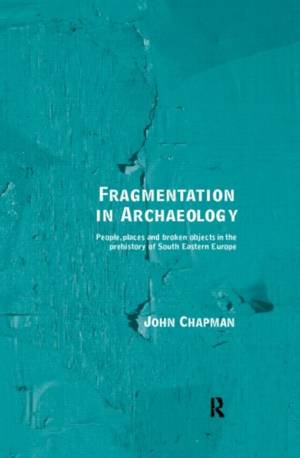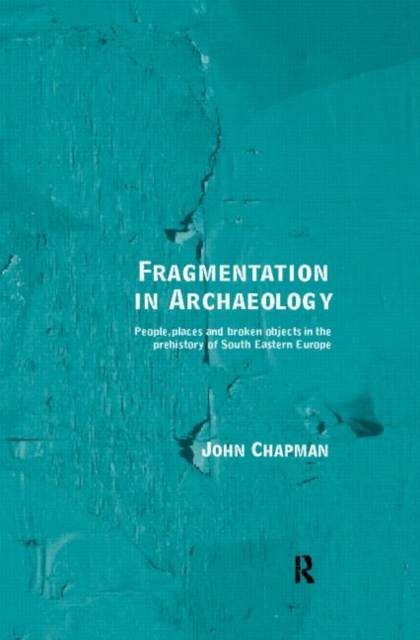
Bedankt voor het vertrouwen het afgelopen jaar! Om jou te bedanken bieden we GRATIS verzending (in België) aan op alles gedurende de hele maand januari.
- Afhalen na 1 uur in een winkel met voorraad
- In januari gratis thuislevering in België
- Ruim aanbod met 7 miljoen producten
Bedankt voor het vertrouwen het afgelopen jaar! Om jou te bedanken bieden we GRATIS verzending (in België) aan op alles gedurende de hele maand januari.
- Afhalen na 1 uur in een winkel met voorraad
- In januari gratis thuislevering in België
- Ruim aanbod met 7 miljoen producten
Zoeken
Fragmentation in Archaeology
People, Places and Broken Objects in the Prehistory of South Eastern Europe
John Chapman
Hardcover | Engels
€ 274,95
+ 549 punten
Uitvoering
Omschrijving
Fragmentation in Archaeology revolutionises archaeological studies of material culture, by arguing that the deliberate physical fragmentation of objects, and their (often structured) deposition, lies at the core of the archaeology of the Mesolithic, Neolithic and Copper Age of Central and Eastern Europe.
John Chapman draws on detailed evidence from the Balkans to explain such phenomena as the mass sherd deposition in pits and the wealth of artefacts found in the Varna cemetery to place the significance of fragmentation within a broad anthropological context.
Specificaties
Betrokkenen
- Auteur(s):
- Uitgeverij:
Inhoud
- Aantal bladzijden:
- 320
- Taal:
- Engels
Eigenschappen
- Productcode (EAN):
- 9780415158039
- Verschijningsdatum:
- 24/02/2000
- Uitvoering:
- Hardcover
- Formaat:
- Genaaid
- Afmetingen:
- 166 mm x 238 mm
- Gewicht:
- 666 g

Alleen bij Standaard Boekhandel
+ 549 punten op je klantenkaart van Standaard Boekhandel
Beoordelingen
We publiceren alleen reviews die voldoen aan de voorwaarden voor reviews. Bekijk onze voorwaarden voor reviews.









